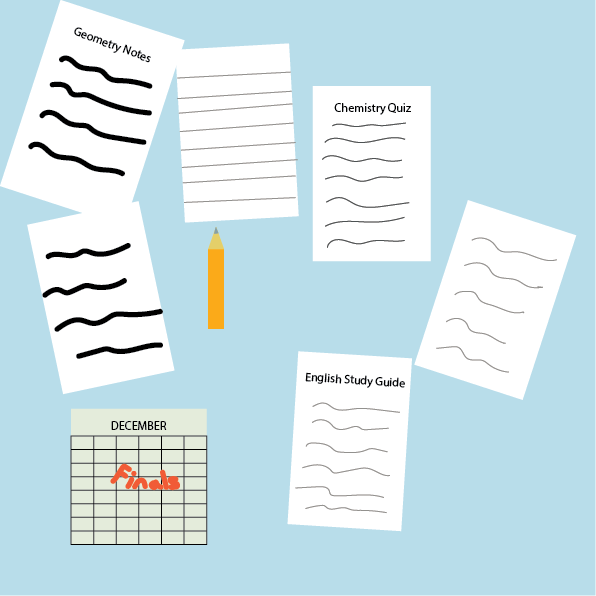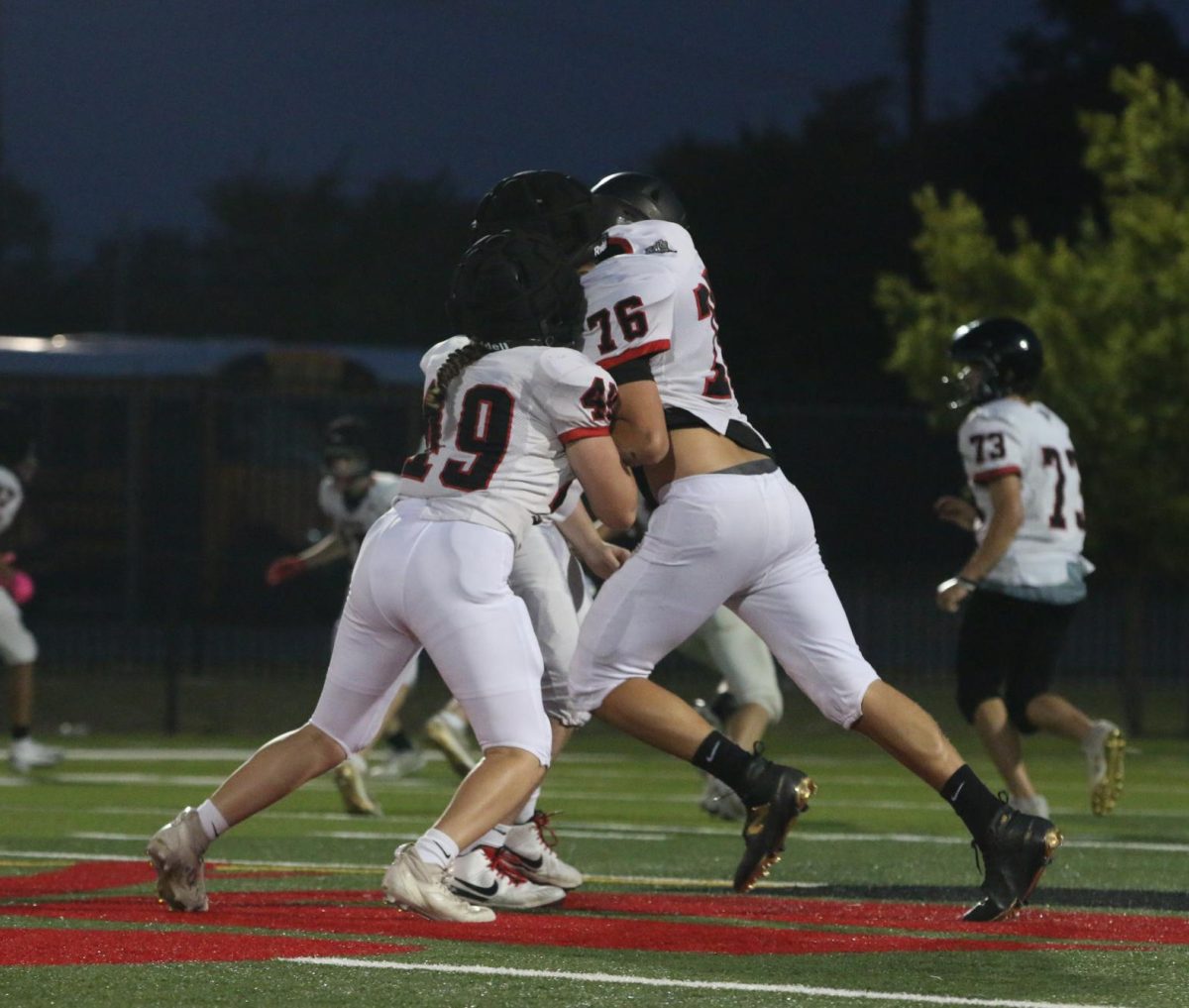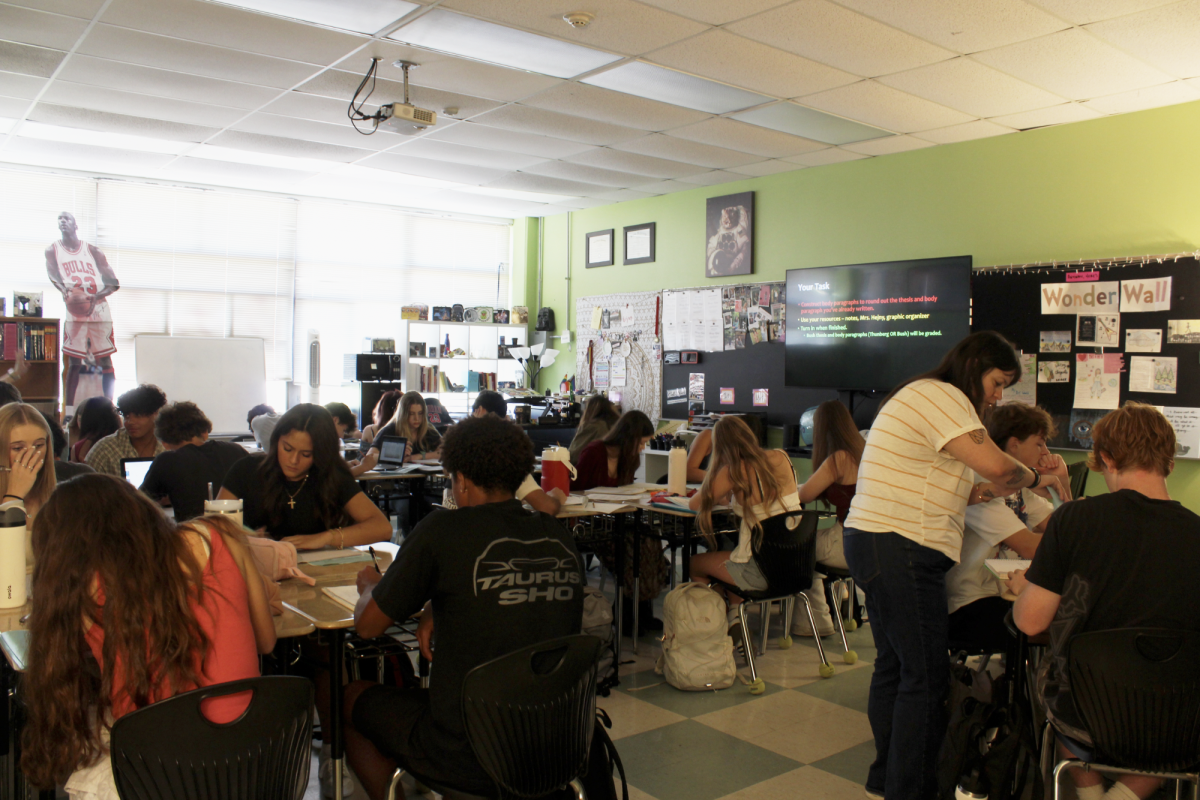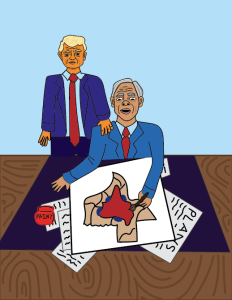The stress that comes with finals

As the first semester of school comes to a close, many students at Bowie understand feeling stressed about upcoming final exams and other schoolwork.
December 13, 2021
Sophomore Slaone McKaskle has been preparing for weeks. Even after looking over her notes, she felt her heart beating faster than normal. She didn’t want to sit in her math class tomorrow and take her final.
This feeling felt by McKaskle isn’t unusual. Test anxiety is a common occurrence for students in elementary school to college age. It can cause someone to doubt themselves and interfere with how well they end up doing on the test.
As the first semester of school comes to a close, many students at Bowie understand feeling stressed about upcoming final exams and other schoolwork. As a mental health professional here at Bowie, counselor Nicole Hepburn has had lots of experience with helping high schoolers through this nerve-wracking time.
“We typically see an increase in students any time a grading period is coming to a close,” Hepburn said. “Test anxiety is a very real thing that a lot of students experience. However, I think tests can be a stressful experience and that it is okay to experience stress in our lives.”
As a sophomore here at Bowie, Sloane McKaskle shares how she can relate to feeling these emotions before an important test.
“I usually get nervous for tests and exams because of how important they are,” McKaskle said. “I get nervous before the test and feel glad that it’s over afterwards.”
When preparing for upcoming exams, counselor April Giuffre offers advice on how students should study and get ready for finals in order to decrease stress.
“When students know a test is coming up, [they should] look at a calendar, determine their schedules and use that to realistically set aside time to study,” Giuffre said. “When you find time to study, use that time wisely.”
According to Giuffre, feelings of stress and anxiety before a test are very prevalent in students and are normal things to feel.
“Test anxiety is more common than we realize,” Giuffre said. “Know that it’s natural to feel nervous about finals, but with preparation, students can feel more confident.”
There are many different ways to study leading up to an exam but knowing how to schedule and keep up with studying isn’t always easy. Consular Hunter Ruffin shares some advice on methods to study the material that might be included on a test.
“Start preparing early and have a plan that includes appropriately timed study blocks,” Ruffin said. “I also recommend having a friend quiz you over the content is a good way to feel the pressure of a test in a lower risk environment,”
Although going over the material and notes is an important aspect of preparing for an exam, Counselor Clare Smith also reminds students to remember to take care of one’s mental health.
“If you feel nervous about something, practice deep breathing and positive affirmations” Smith said. “Tell yourself things like, ‘I can do this’ or ‘I know this.’”
Even after taking a test, Ruffin provides advice on ways to check your work and make sure you didn’t miss any questions.
“If you have time, read through the test a few times when you think you are done,” Ruffin said. “Reread everything and make sure you have responded to every question.”
In the end, Giuffre reminds Bowie students that despite an exam’s significance, the grade you get doesn’t define you.
“Tests are important but they don’t define you,” Giuffre said. “You got this.”








